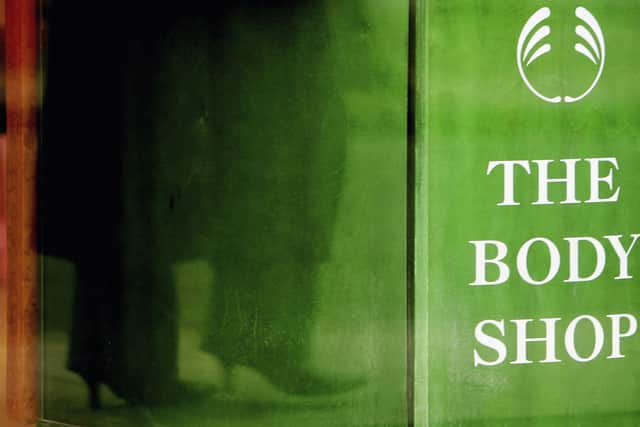Who owns The Body Shop? Why is it in administration in the UK, what is Aurelius - and founder Anita Roddick
and live on Freeview channel 276
High street cosmetics and skincare retailer The Body Shop tumbled into administration on Tuesday (13 February) amid weaker customer demand. The announcement threatens the future of the brand in the UK, its more than 200 shops and thousands of workers. Administrators said the restructuring is to create “a more nimble and financially stable UK business”. However, it is a damning blow for the retailer’s workers and passionate customer base. The administration comes only weeks after new owners, European private equity firm Aurelius, took control of the business.
But just what is Aurelius, and what does it do? And what does administration mean for the future of the business? Here is everything you need to know about it.
Advertisement
Hide AdAdvertisement
Hide AdWho owns The Body Shop?
German-headquartered private equity firm Aurelius secured a £207 million deal in November to buy The Body Shop from Brazilian cosmetics giant Natura & Co. It only took control of operations officially on 1 January.
As a private equity firm, Aurelius invests in and acquires companies with the aim of improving their performance and ultimately generating returns for their investors. It targets companies that are underperforming but have the potential for revitalisation and growth.
Founded in 2005, Aurelius operates across various industries, including manufacturing, services and technology.
The Body Shop was founded in 1976 in Brighton by Anita Roddick and her husband Gordon as one of the first companies to promote so-called ethical consumerism, only selling its own ethically-produced items.
Advertisement
Hide AdAdvertisement
Hide AdRoddick grew the business rapidly over 30 years in charge, with the business witnessing particular success on UK high streets in the 80s and 90s, came under criticism after ultimately selling the business to French industry behemoth L’Oreal for £652 million in 2006.
A year later, Roddick died aged 64 after a brain haemorrhage.
What went wrong?


Under L’oreal - which bought The Body Shop for £652 million - the group had heavily expanded but saw sales growth slow down. Nevertheless, it remained financially sound before being sold to Natura & Co.
In the following years, the company then saw its profitability eaten away by rampant inflation in production, pressure on consumer demand and weakness in the US markets. As a result, it slid to a £71 million loss in 2022 after its turnover dropped by almost a fifth.
Advertisement
Hide AdAdvertisement
Hide AdAdministrators FRP said the business “faced an extended period of financial challenges under past owners, coinciding with a difficult trading environment for the wider retail sector”. It witnessed weaker consumer spending despite growth in other parts of the sector.
GlobalData analyst Tash van Boxel said the company was “ahead of its time” with its initial brand identity but struggled to keep up with new competitors with increased points of difference in more recent years.
“While The Body Shop continues to stand by its ethical and cruelty-free brand values, these claims have become industry standards, weakening The Body Shop’s point of difference. Indeed, not only are brands now offering products with similar claims, but they also bring more to the table to attract shoppers.”
High street rival Lush recorded strong growth in recent years on the back of strong ethical credentials and vibrant products. The Body Shop has also seen growth cut into by the rapid expansion of online-focused rivals such as The Ordinary and Sephora.
Advertisement
Hide AdAdvertisement
Hide AdWhat does administration mean for The Body Shop?
Administrators FRP Advisory are expected to seek buyers for the business and its assets, but the process will nonetheless cast a shadow over the future of its stores and workforce.
FRP Advisory said the move to place the retailer in administration “provides the stability, flexibility and security to find the best means of securing the future” of the chain.
In the immediate future, the company has said it will continue to trade as normal from stores and online during the administration. Administrators have stressed that the process will only affect its UK business, with international franchises not impacted.
According to the BBC: "It is highly unlikely that The Body Shop name will completely disappear from Britain's High Streets after nearly 50 years."
Advertisement
Hide AdAdvertisement
Hide AdThe administrators are anticipated to make significant cost reductions, particularly in areas such as property and rent, which may result in job layoffs.
Comment Guidelines
National World encourages reader discussion on our stories. User feedback, insights and back-and-forth exchanges add a rich layer of context to reporting. Please review our Community Guidelines before commenting.
